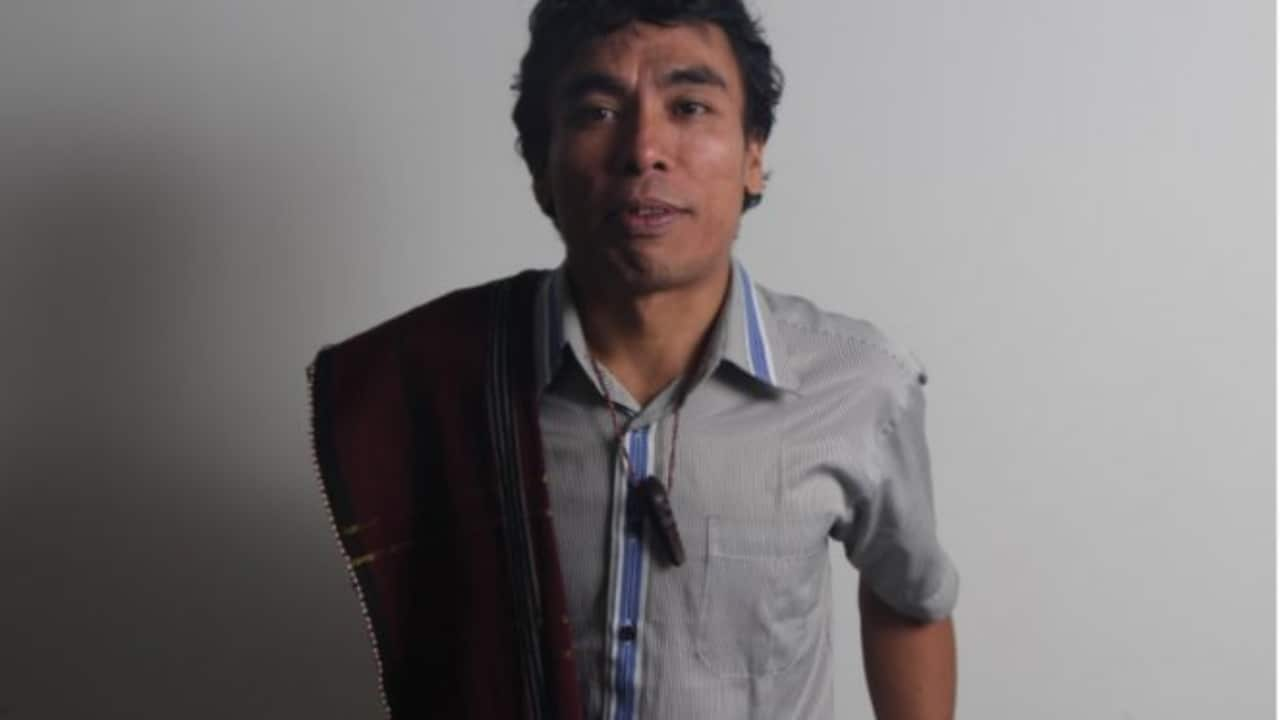Jhontoni Tarihoran is the Ketua Pelaksana Harian (PLH) of the Alliance of Indigenous People of Nusantara (AMAN) Tano Batak. He is active in defending Indigenous peoples and mediating these conflicts, in order to find a just and sustainable way out.
AMAN is the national organisation of Indigenous people in Indonesia, which advocates for Indigenous rights.
Jhontoni confirmed, this violent tragedy occurred around the famous Toba lake, and administratively the village was in Simalungun district.
The National Commission on Human Rights (Komnas HAM) noted that violence occurred when about 150 suspected workers, freelance day laborers, and PT TPL security units attacked residents of Sihaporas, which numbered about 30 people.
Mobs from this company carried wood, shields, helmets, and carried out beatings and stone-throwing. As a result, more than 30 residents were injured, of which 18 were women and 15 men, including vulnerable groups such as women, elderly residents and people with disabilities, as well as a student of Bogor Agricultural Institute (IPB). Komnas HAM also stated that there had been destruction and burning of houses, cottages, post offices, motorcycles, as well as pickup cars. Personal items such as mobile phones and laptops were also lost.
Komnas HAM strongly suspects that there have been human rights violations in this incident.

Jhontoni said, “This conflict is an old legacy, people have been fighting to defend their land since 1998, until now. During that period, many residents became victims of criminalization and ended up in jail, he said.
PT Toba Pulp Lestari is a pulp, pulp, or pulp manufacturing company. In the past, this company was called PT Inti Indorayon Utama. The pulp is produced with eucalyptus or eucalyptus raw materials. The company owns 167 thousand hectares of concession land around the Toba lake area.
Concession rights granted by the New Order government, or by the administration of former President Sueharto, apparently overlapped with community-run Indigenous lands. Since more than 200 years ago, people have cultivated the land in the area for agriculture. While a new company came in the 1990s.
Jhontoni confirmed that Indigenous people in Sihaporas have cultivated the land for 11 generations. The crops managed include coffee, various types of horticultural crops, durian fruit crops, as well as jackfruit. In addition there are also food crops such as rice, corn and yam.
Jhontoni noted that the case of violence in Simalungun was not the only one in North Sumatra. In the province, conflicts between concessionaire companies with the community also broke out in various places. The fundamental problem is that the government grants certain companies the right to manage land or forests, while since hundreds of years ago, local people have cultivated the land for food needs and various types of fruit commodities.
Jhontoni regrets that, precisely in the midst of this kind of conflict, the government is absent and plays a role in finding a way out. If the government acted decisively, surely this conflict would have been over a long time ago.
Indonesia itself already has various laws, which in essence guarantee the rights of Indigenous peoples to their Indigenous lands or forests. Surprisingly, the legal product created by the government is not implemented by the government itself.
Jhontoni gave an example, in North Tapanuli there were groups of Indigenous people who had already received government decrees in recognition of their rights, both from the local government and ministries in the center. But such official government decrees, however, have no meaning on the ground, as various companies continue to annex lands or forests belonging to Indigenous peoples.
The Constitutional Court of the Republic of Indonesia has also ruled that Indigenous forests are not state forests. Yet such decrees are meaningless.
Jhontoni welcomed the statement of stance from Komnas HAM which strongly suspected there were human rights violations in this case. But he reminded that in recent situations where violence has been so massive, the expression of attitudes has become less meaningful. A letter of recommendation would be meaningless. He insists that a proper solution is needed to stop all potential conflicts.
Jhontoni and AMAN demanded companies operating in Indigenous owned territories to cease their operations. This is important so that people can access their livelihoods without the threat of violence.
In addition, the government must also implement long-term solutions. In Indonesia, there is a legal basis that allows the government to reduce the amount of land concessions already granted to private companies. Therefore, the government could actually reduce the area granted land or forest management permits. Thereafter, Indigenous people were given the right to manage the land as before.
Listen to the full podcast and click here for other news from Indonesia.




